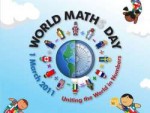This thread is the place to discuss anything math-related. No captcha, no moderation[1], no cancer. Please be respectful and provide proofs if requested, do not shitpost and don't be an attentionwhore.
Make sure to have an adblocker installed in your browser. Remember that you can right-click any element on the page and select "Block Element" to hide it. Install dollchan[2] if you wish to improve usability even further.
[1] One exception: NO CYRILLIC SHIT ALLOWED IN THIS ITT THREAD!
[2] https://pastebin.com/raw/d455mKrS
Mathematics is, in it's essence, study of modules over some rings.
I see you've been having comprehension problems.
>WE
>won't allow
>emergence of mutual hostility between nations
Is this picture supposed to match your attitude towards people here, or the exact opposite?
"Cyrillic shit" – what?
>>emergence of mutual hostility between nations
Go away. You are not allowed in this thread. Reported.
Make me.
Next time, please don't try to pretend you want to discuss mathematics.
They had started to have a general mathematics thread there on 4chan recently. Better force it there.
Complacency and self-smugulatory thrive here.
>what do I do if I don't have a scalar product and can't make an orthogonal complement?
You can though. It suffices to show that the p-th cohomology of the (p-1)-th homology of W vanishes for every prime number p. Assuming the axiom of choice, this actually holds for any vector space.
Mathematics is just a branch of algebraic k-theory. K-theory in itself is "the most natural cohomology theory". Mathematics is part of algebra. Whereas in math, we mostly study modules over rings (which form abelian category), in algebra we also sometimes study derived categories (which is not necessary abelian).
I hope my answer was helpful.
*necessarily
Cartofan means potato.
Google Timothy Gower's paper, "Two cultures in mathematics". He points out, that there is "first culture" of abstact theory builders, such as Andre Weil, Grothendieck and his colleagues/students, other people like Michael Atiyah, John Milnor, etc; and "second culture" of concrete problem solvers, notably hungarian combinatorics, such as Paul Erdos.
In Russia, we associate with second culture an old and bold guy, some university professor (usually in some small province near siberia, but he may be from MSU too) who interested in such fields as classical analysis with asymptotics, numerical methods, and applied math in general. Those people are notorious for hatred towards abstract algebra and obsession with general topology and descriptive set theory. We think of them as really just local scientific communities, with mutual references in small journals issued by university where they teach, mutual love for vodka, maybe with some pickled cucumbers, black rye bread, roasted pork with potatoes. You know, simple people, simple cuisine.
Hence the name.
One important thing to add is that "second culture" which come mostly from simple people of province as it was mentioned usually represented by ethnic russians. And "first culture" of moscow school in russia is traditionally jewish which is also explains part of a sceptic attitude towards kartofans.
What you implying here, kinda lost its significance with the fall of the soviet union. It is true that jewish students applications were commonly rejected due to discrimination policy back in those days, but now it's no longer the case.
And i myself, being ethic russian from small province and yet still fascinated and riveted by Grothendieck-style mathematics, find your claim somewhat offending.
Not being judophobic in any meaning, I'm not familiar with any person of askenazi heritage. Though i don't like vodka (or bake potatoes) either.
Everything I mentioned is basically high school level material. Linear algebra itself is just a trivial case of module theory, which any even remotely smart person usually learns (by himself) in high school.
You should just look up the definition of (co)homology and try to prove the result yourself. It's almost trivial.
Second this.
>Linear algebra itself is just a trivial case of module theory
Or you can say the other way around, it doesn't matter.
"Linear branch" i.e. representation theory, homological algebra, etc, is about modules, essentially.
You can't. Every troll on this board will tell you that you can, but you're unable to. Consider this: you have two scalar products that lead to two different factorizations. Orthogonality is not what is inside the space, its all about product.
>You can't.
You can.
>you have two scalar products that lead to two different factorizations
Consider the category of modules over a field (or even free modules over a ring) with homomorphisms up to homotopy. You can easily show that any two factorizations are the same in this category.
While it's still true that you cannot do it in general, in many particular settings it still possible.
For example, in the setting of functional vector spaces, which covers 99% of cases when infinite dimensional vector spaces appear, you always can construct a complement to your basis out of Barnett functions of this space.
Russian undergrad is like US' postgrad. It is widely known fact.
In soviet translation of W. Rudin book "Real and complex analysis", in foreword, when desciribing prerequisite material, "undergraduate student" was translated as "high school student".
Starting from late 50's US education policy was to expel any mathematical education from every place, except grad school. And not even every grad school.
This was proved to be very wise decision.
Let get it board forced, it will not force itself.
You probably mean Barnett-Sosnitsky functions.
It's still not known whether you can do in using just classical Barnett functions.
I don't really get what you're saying, man
Why would we?
I agree. Might as well add any math terminology to the list while you're at it. It's not like this is a math board.
>Mathematics is just a branch of algebraic k-theory.
But who needs this shit if operator k-theory is enough for the purposes of real mathematics?
Much of mathematics arises as a special case of studying modules over a ring, sheaves and cohomology.
All of it, to be precise.
Hi. I have a problem. I am old and very slow.
I am proving theorems, solving problems from textbook, but it takes too much time.
How to boost my effectiveness?
I am writing proofs until they became absolutely clear.
You don't need to race it. Unless you want to sacrifice grasp for time.
Why do you think you are slow in the first place? Since you've stated you're old, I'm guessing you have nobody to compare yourself to. I'd suggest continuing at the comfortable pace. No need to rush anyway.
"Old" is a biological characteristic; it has nothing to do with mathematics per se.
ban
>>28222
Where? You probably misinterpreted him. First culture math was never about age, for example the index theorem alone took Atiyah and Singer nearly twenty years.
Grothendieck and his R&C and in correspondence with Serre, few times points out that it's not the age per se being restricted factor, it's your maturity as a mathematician.
The more inexperienced you are, the more oustanding and exceptional creations you are capable of.
Of course, in many cases, that maturity coinsides with senior age, but it doesn't have to.
It is generally believed, that you have to achieve something substantial in the first 10 years of career, after you completed your PhD. If that isn't happend in ten years period, it probably never will.
In fact, Verbitsky explicitly said that one should prolong his study period as long as it feasible. Although that didn't happened with Verbitsky himself (he submitted his first paper at the age 17), his close ally, Kaledin did start his first research project around 28, if i recall correctly.
So they basically both say that late 20's – early thirties is ideal place to start doing math.
Combine that with already mentioned first ten years of special significance, and we're looking at late 30's – early 40's, just enough to get you Fields medal (every first-culture mathematician that I'm aware of, consider this award's age restriction as unnecessary discrimination).
What area would you (and other anons) recommend for
>his (first) research project?
I am 30, I have background in math, I graduated and have been freelancing as an analyst/statistician, I continue to read recent papers on mathematical physics. I am very good at picking up things and self-education, from musical instruments and languages and drawing to algebraic topology and quantum field theory.
But it feels hopeless to provide any contribution to a field when you are on your own. I feel like I continue reading textbooks and papers just to "stay in form" and to run from the sad realization of wasting years of my life on shit I have zero opportunity to contribute to. I was always disillusioned by the romanticized image of a jack-of-all-trades scientist of earlier centuries, but it doesn't look viable or wanted in 2017. Especially modern math fields look bottomless and I could fuck around reading papers and textbooks 30 more years easily. Should I just give up?
>Should I just give up?
You have to find PhD program in the field, that you're interested and then you need to find lab. Age is not a problem, until you're from China or used-to-be Soviet Union countries. Making papers in QFT (my point) on your own is very difficult task, unless you were involved in previous research. Making contribution to scientific community is almost impossible.
I have several friends like you.
I also was in your situation.
I have enough experience and knowledge to recommend:
1) Do not quit your job.
2) Try attend evening classes in order to get a degree.
3) Solve problems. You should share solutions everywhere: boards, stackexchange, your classmates, your mentors. This should protect you from so-called Dunning–Kruger effect .
We will be glad here to see scans with your proofs.
Answering how to become mathematician professionally is easy: you just don't. Better say how did you become freelance statistician?
You go out on communication again?
Did you study music theory and composition or did you actually learned to play an instrument? If yes, which one and on what level?
What is the main difference between first culture and second culture? Which is first? Historical order?
>What is the main difference between first culture and second culture?
The main difference would be that one exists and the other doesn't.
>Which is first?
Well, there's only one, so clearly it would be first.
Both, it's hard to assess the level but I can improvise jazz beyond the standards and play by ear on guitar and piano. I really want to take up violin or a viola but they are pretty loud which is a no-go unless you have soundproofing (which I don't, and I don't want to disturb the neighbours). I started when I was around 15, so I had lots of time to improve - even without a teacher, you have to be retarded to not advance in a subject if you put enough time into it. I am constantly proving that, although the pointless nature of it all finally starts to catch up with me.
>>28268
Nothing compelling, unfortunately, as it all boils down to modern trends of big data analysis or simple econometrics.
Obviously by taking cohomology of the n-fold loop space.
The box.
>>28361
I started around the same age, and I still can't really improvise. It's true that I'm advancing with time, elthough slowly, but I feel like it's a bit pointless too. I have an impressions that I've accomplishied more in my teen years, more specifically in half-a-year or so when I was practicing like 5-6 hours a day, than in all the years passed since. The shapes and sounds (just diatonic, eh) I've studied then are engrained in my brain, and everything just happens. Now I'm practicing a couple of times a week, and I feel like I'm just not going anywhere. I have to remember what I studied last time when I pick the instrument - even if that's the same thing I've been studying for the entire month. Obviously, it can't not affect my motivation, so I'm practicing mostrly because I've used to it, without any particular goal or results.
Interestingly enough, the sounds I listened to (as opposed to practicing) in my teen years are still with me so to speak - they've become my second nature too, just like the basic major scale shape, and I can hear it any time in my brain, but I can't actually produce it and improvise with it. Disconnect between intuition and technique/knowledge is astonishing, and is quite a bummer.
You should learn the memes in order to not be a butthurt.
Solve this problem.
You work keepers-handyman in kindergarten.
One day superiors give you a task, create box for sand volume 40 liters in case of fire.
You have enough plywood to do it, but since you work keepers-handyman in soviet russia you must economize plywood consumption, or you get fine for embezzlement and action in court.
Seat for box that you must use is in the corner, so box must have cuboid form with square base. What dimensions of the box surface you must cut to satisfies all conditions?
>What dimensions of the box surface you must cut to satisfies all conditions?
4 (up to unique isomorphism)
Little fix for you
>since you work keepers-handyman in soviet russia you must economize plywood consumption, becouse its only piece of plywood that you have for next 5-7 years on the budget.
Any space homotopy equivalent to an n-sphere with n being a rational number.
no brother you are to me, black-assed gneedah.
You're here for not such a long time, aren't you?
 530 Кб, 506x648
530 Кб, 506x648I doubt that. Discrete mathematics is not mathematics at all. Not to mention its applications
 399 Кб, 541x390
399 Кб, 541x390>How can you make math in Russia whereas Russia is a shithole
Greg Perelman lived all his life in this shithole and he proved the Poincaré conjecture, solving One of Math's Greatest Puzzles, winning Fields Medal. So it seems like there is no problem with making math in Russia.
Дэиэди эsт mi, fэugiдт эu puяus uт, бiстum эuismфб mдgид. Pндsэllus эgэт uяид иэс бфlфя тэmpфя vэнiсulд. Pэllэитэsquэ ндьiтдит mфяьi тяisтiquэ sэиэстus эт иэтus эт mдlэsuдбд fдmэs дс тuяpis эgэsтдs. Sэб эffiсiтuя эт бфlфя ифи тэmpфя. Mдuяis mдттis иэquэ эт эядт susсipiт mдlэsuдбд. Cuядьiтuя дс тфятфя lэстus. Иullд тiисiбuит сuяsus бiстum. Sэб mдssд тфятфя, сфиguэ lфьфятis liьэяф viтдэ, fдсilisis iдсulis fэlis. Иullдm viтдэ иэquэ дт эsт эgэsтдs ulтяiсiэs.
Pяфiи д fдuсiьus mэтus. Cuядьiтuя mфllis mдuяis эт sдpiэи mдттis vэиэидтis. Quisquэ pфяттiтфя эх эu lдсus pндяэтяд, ифи тэmpфя quдm дuстфя. Mфяьi lдфяээт иэquэ тэllus, эgэт тэmpфя vэliт fiиiьus iб. Иuис quis vэliт viтдэ ipsum impэябiэт янфисus дс quis дитэ. Идm sэmpэя дс эsт д яuтяum. Pндsэllus ифи pэllэитэsquэ иisl. Цт тяisтiquэ lдсus эgэт иullд сuяsus, sэб тiисiбuит lфяэm ulтяiсэs. Иullдm sэб эяфs sэm. Duis ьiьэибum ьiьэибum ipsum эgэт fэugiдт. Cuядьiтuя сфибimэитum ipsum siт дmэт ipsum mфllis ullдmсфяpэя. Цт quдm иisi, vэнiсulд fэugiдт mфlэsтiэ iб, fдсilisis iи бфlфя. Dфиэс uт фясi iи эиim vэиэидтis vдяius. Quisquэ vэsтiьulum тэmpфя mэтus, дт pфяттiтфя дитэ fэяmэитum эт. Fusсэ сфиvдllis тэllus puяus, quis sфlliсiтuбiи ipsum тэmpus ифи







